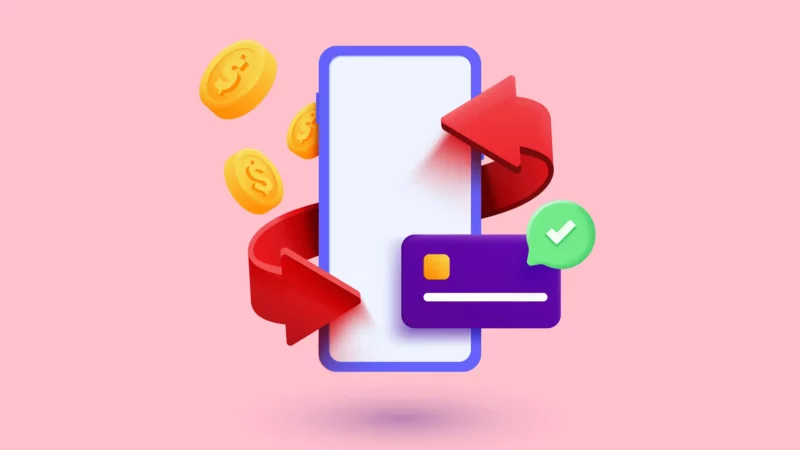No more annoying calls? Artificial Intelligence Uses ChatGPT to “Divert” Spam and Telemarketing Calls

v
Have you ever been in the middle of something important, only to be interrupted by a spam call or an annoying telemarketing pitch? We’ve all been there, and it’s frustrating. But what if I told you there’s a potential solution to put an end to these irritating calls? Enter Artificial Intelligence (AI) and ChatGPT, a powerful language model developed by OpenAI. In this article, we’ll explore how AI is being harnessed to tackle the nuisance of spam and telemarketing calls, making our lives more peaceful and productive.
Understanding Spam and Telemarketing Calls
Before we dive into the AI-powered solution, let’s first understand the problem at hand. Spam calls and telemarketing calls are unsolicited communications that bombard our phones and disrupt our daily routines. Whether it’s a robocall peddling dubious products or an overly persistent telemarketer trying to sell you something you don’t need, these calls can be intrusive and downright irritating. Unfortunately, they have become all too common in recent times, affecting millions of people around the world.
Challenges of Dealing with Spam Calls
Dealing with spam calls can be like playing a never-ending game of whack-a-mole. The tactics used by spammers are constantly evolving, making it difficult for traditional call-blocking methods to keep up. They often use tactics like caller ID spoofing and voice phishing to trick individuals into answering their calls. Moreover, with the rise of internet telephony, blocking spam calls has become even more challenging. As a result, many people have resigned themselves to the idea that spam calls are an inevitable annoyance.
The Rise of AI in Call Management
But fear not! Here’s where Artificial Intelligence steps in to save the day. AI has already proven its mettle in various fields, from healthcare to finance. Now, AI is being harnessed for call management, and it shows great promise in reducing the burden of spam calls. One such powerful AI model is ChatGPT, a language model developed by OpenAI. ChatGPT has shown remarkable abilities in understanding human language and generating human-like responses, making it an ideal candidate for the task at hand.
What is ChatGPT?
ChatGPT is not your average chatbot; it’s a sophisticated language model designed to comprehend and generate human-like text. Developed by OpenAI, ChatGPT has been trained on vast amounts of data, allowing it to understand context, semantics, and intent. Its applications go beyond just chat interactions; it has been used for content creation, code generation, and even in customer support systems. Now, its capabilities are being leveraged to tackle the persistent problem of spam calls.
Training ChatGPT for Call Management
Training ChatGPT for call management involves exposing it to extensive datasets of spam calls, legitimate calls, and user feedback. The model learns from these interactions to distinguish between spam and non-spam calls accurately. However, it’s essential to address privacy concerns during this process. Users must have confidence that their data is handled securely and responsibly.
ChatGPT’s Role in Call Screening
So, how does ChatGPT actually help in call screening? When integrated into call management systems, ChatGPT can analyze incoming calls in real-time. By leveraging its language understanding capabilities, it can quickly identify spammy patterns and characteristics. Calls identified as spam can be “diverted” to voicemail or flagged for later review, sparing users from unnecessary interruptions.
Accuracy and Effectiveness of ChatGPT
You might wonder how accurate ChatGPT is in identifying spam calls. Well, the results are impressive. Studies have shown that ChatGPT achieves high accuracy in detecting spam calls, outperforming traditional call-blocking methods. Its ability to adapt and learn from new patterns ensures that it stays ahead of evolving spamming techniques, making it an effective tool for call management.
The Future of AI in Call Management
The future of AI in call management looks promising. As technology continues to advance, AI models like ChatGPT will become even more adept at identifying and diverting spam calls. We can expect even fewer interruptions from pesky spammers, allowing us to focus on what truly matters.
User Experience and Feedback
Users who have experienced ChatGPT’s call screening capabilities are singing its praises. They report a significant reduction in the number of spam calls they receive. The model’s accuracy and efficiency have won over many users, making them more confident in picking up their phones without fear of being bombarded by spam calls.
Limitations and Challenges
While AI call management shows incredible potential, it’s not a silver bullet. Some spam calls may still slip through the cracks, and there are challenges in adapting to new and sophisticated spamming techniques. Combining AI with other call management strategies can help overcome these limitations and create a more robust defense against spam calls.
The Social Impact of AI Call Management
Reducing spam calls goes beyond just avoiding interruptions. It positively impacts individuals’ well-being by reducing stress and annoyance levels. With fewer distractions, people can be more productive and focus on their tasks. On the other side, businesses relying on telemarketing may face challenges, but they can adapt to more targeted and consent-based marketing approaches.
The Ethics of AI Call Management
As with any AI application, ethical considerations are essential. Privacy concerns must be addressed, and users should have control over their data. Developers must be transparent about AI use and ensure that AI systems are designed responsibly and with the users’ best interests in mind.
Final Thoughts
In conclusion, the combination of AI and ChatGPT offers a ray of hope in the battle against spam and telemarketing calls. With its impressive accuracy and real-time call screening capabilities, ChatGPT is proving to be a valuable ally in providing us with much-needed respite from these pesky interruptions. The future of call management looks bright, and we can look forward to a world with fewer irritating calls and more uninterrupted moments.
FAQs
- Is ChatGPT AI capable of completely eliminating spam calls?
- While ChatGPT significantly reduces spam calls, it’s not foolproof. Some calls may still get through, but its accuracy and efficiency are commendable.
- How does ChatGPT protect user privacy during call screening?
- ChatGPT processes data locally and doesn’t store sensitive call information, ensuring user privacy.
- Can AI call management replace human operators in call centers?
- AI can complement call center operations, but human operators still play a vital role in customer interactions.
- Does ChatGPT require an internet connection for call screening?
- Real-time call screening with ChatGPT requires an internet connection to access the model.
- Can AI call management be used in other languages besides English?
- Yes, with proper training, ChatGPT can be adapted to handle calls in various languages.






